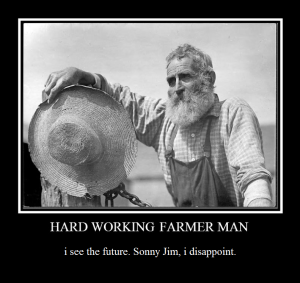Social Literacy
As a future English teacher, I’m a little ashamed to admit that my view of literacy before this course was tragically shallow. I would’ve given a simple definition of what it is to be literate, somewhere along the lines of: the ability to read and write. Simple and accurate, right? I’m both excited and grateful that my eyes have been opened to literacy’s broader foundation. Although an exact definition is sure to elude us for the time being, there remains one necessity to its definition that can’t be disputed. Literacy is social. At the beginning of the class, even this concept was a little fuzzy for me, but as I look at it now, it seems a no-brainer. Of course literacy is social. Human beings are social. Among other uses, literacy is a nonverbal form of communication, and communication is social in nature. So literacy must be social.
From here, I could go on and write a fifty page blog on literacy and its social forms and purposes, but I think the experts already covered that…so I think I’ll just pull out some quotations I like and explain them a little bit:
- “For one thing, the mass of American workers has had to shift from growing food to manufacturing goods to, principally, managing information” (Brandt, Accumulating…652). Although this quotation initially focuses on the development of literacy in a professional manner, I want to focus on the phrase, “managing information,” in a social manner. We live in an age often called the “Information Age,” where, essentially, we have mastered the art of managing information. Modern day Americans have limitless information available to them, simply and most profoundly because of the advent of the internet. This creates untold opportunities to learn, share, produce, and communicate in a way never before dreamed of in world history, all due to literacy’s broad foundation and its limitless capacity for information. Not to mention, it has completely transformed the workplace. America used to be 90% farmers; now it’s only 2%.
- “If we want to serve students best in their literacy education we should not scare them with tales of the literacy crisis of their generation but instead teach them how to understand how language, culture, and identity work together. Then students can read and write in any context, making their language choices with knowledge and power” (Williams, 181). I absolutely loved William’s article; it was by far my favorite piece because of its simple, common sense approach to this idea of literacy crisis, and its specific focus on teachers. Williams claimed that teachers should reject “conventional” forms of teaching language and grammar, and instead focus on culture and context. It’s simple: know who you’re speaking to and for what purpose, and speak appropriately; similarly, know who you’re writing to and for what purpose, and write accordingly. There need not be this huge panic about waning literacy standards if we teach our students to know the social culture in which they must use it.
- “The enterprise of defining literacy, therefore, becomes one of assessing what counts as literacy in the modern epoch in some given social context. If a nation-society is the context, this enterprise requires that consideration be given to the functions that the society in question has invented for literacy and their distribution throughout the populace” (Scribner, 14-15). In short, literacy is broad. From the necessary literacy skills need to interpret legal documents as a lawyer, to the baseball aficionado who reads sports catalog jargon, to grammar worksheets in middle schools, to reading the morning paper, literacy is a broad subject because its forms are innumerable. Society has invented interminable functions for literacy, and its distribution throughout the populace is immeasurably varied. I have not much to say on this matter but that nailing down an exact definition for literacy is almost impossible and literacy is a beautiful and varied thing of modern life.
- “Literacy is not a necessity for personal survival. As far as we could determine, nonliteracy status does not exclude a person from full participation in economic activities or in town or society life (Szwed 22). This was taken from Szwed’s case study of the Vai community and therefore accounts for its seeming absurdity. I say absurdity because in modern day America, it seems almost certainly not true. I think that it is safe to say that a non literate person (in the simple sense of being able to read and write) could not participate fully in economic or societal activities. Not fully. Literacy has become such an important part of life in modern day America, that it is seen as a necessity for any sort of social acceptance or power, not to mention ability to retain professional job. There is always need for at least a little amount of literacy. However, this brings up my point. There are still communities out there where this is not true e.g. the Vai community. As Americans we are certainly considered in the upper scale of civilization; however, there are communities in the world, which fully function without the use of everyday literacy. Is a society where literacy dominates necessarily better than one who functions fully without it? The disparity is certainly thought-provoking, especially in terms of this larger picture of a world society. There are about 7,000 different languages spoken in the world. What a large and complicated society to be a part of as a human being!



 Website:
Website: